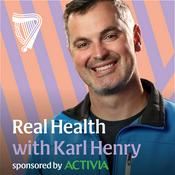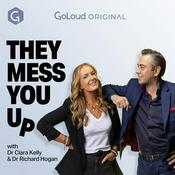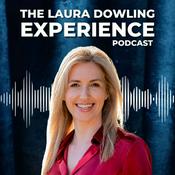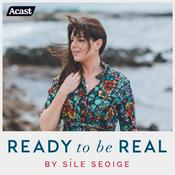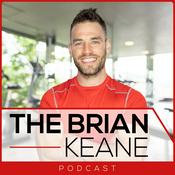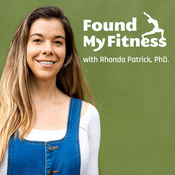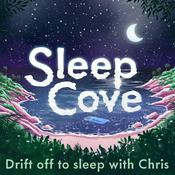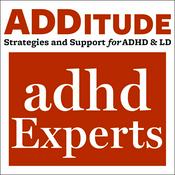116 episodes
- In this episode of Talking Sleep, host Dr. Seema Khosla welcomes three members of the World Sleep Society's consumer health technology task force—Dr. Michael Chee, Professor and Director of the Center for Sleep and Cognition at the National University of Singapore who chaired the guideline-writing task force; Dr. Mathias Baumert, an associate professor leading the biomedical engineering discipline of the school of Electrical and Mechanical engineering at Adelaide University in Australia, and Dr. Cathy Goldstein, professor of neurology at the University of Michigan. to discuss their global recommendations for the use of consumer sleep technology and wearable health trackers.
Consumer wearables have become ubiquitous in clinical practice, with patients routinely sharing device data. While some clinicians have historically dismissed this information, attitudes are shifting as technology improves and rigorous research examines sensors, algorithms, and data quality. Dr. Chee explains that the recommendations are designed for multiple audiences: end-users, clinicians, researchers, and manufacturers, with specific guidance for each group.
The conversation addresses practical considerations: the assumption that users have good perfusion, how bed partners can influence movement detection, and the fundamental truth that the best device is one patients will actually wear properly. The panel discusses recent FDA regulatory changes and clarifies whether guidance applies only to non-FDA cleared wellness devices or has broader implications.
The experts systematically review various metrics from wearables. They introduce TATS (total attempted time in sleep) and explain what clinicians should know about sleep onset and offset detection.
The episode emphasizes the call for standardized Fundamental Sleep Measures and greater transparency about test populations used in device validation. Dr. Baumert discusses the need to co-create benchmarks for measurement accuracy across different contexts—from persons with normal sleep to shift workers to those with sleep disorders.
Whether you're skeptical about consumer wearables or seeking guidance on interpreting patient-generated data, this episode provides evidence-based recommendations for moving forward responsibly.
Join us for this important discussion about embracing consumer sleep technology while maintaining clinical rigor. - In this season 8 premiere of Talking Sleep, host Dr. Seema Khosla welcomes three members of the AASM guideline committee—Dr. Rami Khayat, Professor and Division Chief of Pulmonary, Allergy & Critical Care Medicine and Director of Penn State Health Sleep Services; Dr. Shirine Allam, Professor of Medicine at Emory University and Program Director for the Pulmonary and Critical Care Fellowship at the Atlanta VA Medical Center; and Dr. Christine Won, Medical Director of Yale Centers for Sleep Medicine and Professor of Medicine at Yale University—to discuss the newly released AASM clinical practice guidelines for central sleep apnea treatment.
The conversation begins with the rigorous process behind guideline development, clarifying the distinction between evidence-based recommendations and expert opinion. The panel systematically walks through each recommendation, addressing CPAP use across various CSA etiologies including primary CSA, heart failure-related CSA, medication-induced CSA, treatment-emergent CSA, and CSA due to medical conditions.
A surprising recommendation against BPAP without backup rate generates discussion about why backup rates matter and why heart failure patients are excluded from certain BPAP recommendations. The experts tackle the controversial topic of adaptive servo-ventilation (ASV), explaining why it's now conditionally recommended even for heart failure patients despite SERVE-HF trial concerns. They clarify that newer ASV algorithms differ from devices used in that study and emphasize the importance of patient-provider shared decision-making and treatment at experienced centers.
Practical implementation guidance covers oxygen therapy for heart failure and high-altitude CSA, including insurance coverage challenges. The panel discusses acetazolamide use across multiple CSA etiologies, providing concrete advice on prescribing and follow-up protocols. Transvenous phrenic nerve stimulation receives attention as an option for select patients, with candid discussion about its invasive nature, accessibility limitations, and high costs.
The episode addresses the shift toward viewing CSA treatment as chronic disease management, including billing code G211 implications. The experts emphasize that guidelines guide but don't constrain clinical judgment, stressing the importance of monitoring beyond AHI—including patient symptoms and quality of life improvements.
Whether you're treating patients with CSA, navigating insurance coverage, or seeking clarity on when ASV is appropriate, this review provides essential guidance for implementing evidence-based CSA treatment.
Join us for this season premiere that translates complex guidelines into practical clinical applications. - In this episode of Talking Sleep, host Dr. Seema Khosla welcomes Dr. Safwan Badr, the newly appointed editor of the Journal of Clinical Sleep Medicine and sleep medicine physician at Wayne State University, for an in-depth review of the most impactful articles published in JCSM during 2025.
Dr. Badr discusses his vision for the journal and the editorial selection process, then guides listeners through key research findings shaping clinical practice. The conversation highlights both highly popular papers and important studies that deserve more attention from practicing clinicians.
A significant focus is placed on research confirming that traditional 4% hypopnea criteria and CMS definitions systematically underestimate sleep apnea in women, with expanded diagnostic criteria helping mitigate these gender disparities. The episode explores groundbreaking research on sleep architecture and Alzheimer's disease, examining how lower slow wave sleep and REM sleep correlate with brain atrophy in AD-vulnerable regions, particularly the inferior parietal lobe.
Consumer sleep technology receives critical examination through a meta-analysis comparing wrist-worn devices to polysomnography, revealing significant limitations in accuracy. Dr. Badr discusses implications for physicians and consumers who increasingly rely on these devices. Mental health intersects with sleep medicine through research showing that nightmares and insomnia in the acute aftermath of trauma predict suicidal ideation—nearly half of acute trauma patients with both conditions experience suicidal ideation within two months, highlighting urgent need for early interventions.
Additional topics include Canadian research on CBT-I effectiveness during pregnancy and findings from the TODAY study examining obstructive sleep apnea's relationship with glycemic control and cardiovascular risk in young adults with youth-onset type 2 diabetes.
Whether you're looking to stay current with evidence-based practice changes, interested in emerging research on sleep and neurodegeneration, or seeking to understand gender disparities in sleep medicine, this year-in-review provides essential updates. - In this special live episode recorded at Sleep Medicine Disruptors in Austin, Texas, host Dr. Seema Khosla sits down with two standout innovators whose technologies captured the spirit of disruptive innovation in sleep medicine. Dr. Jason McKeown from Neurovalens and Dr. Onur Kilic from Bairitone Health present groundbreaking approaches to treating insomnia and personalizing obstructive sleep apnea therapy.
Dr. McKeown, a neurologist, introduces his FDA-cleared non-pharmacological treatment for insomnia using vestibular nerve stimulation. He explains how the technology works, why stimulating nerves in this manner is safe, and how it differs from vagus nerve devices. The conversation explores the relationship with cognitive behavioral therapy for insomnia (CBT-I), addresses the placebo effect question, and clarifies whether this is a long-term solution or temporary intervention. Dr. McKeown discusses contraindications including pregnancy and Inspire therapy, potential side effects, and ideal patient populations.
Dr. Kilic presents his sensor technology that enables non-invasive assessment of airway collapse location and severity—what he calls an "anatomic PSG." This innovation addresses a critical challenge: predicting which patients will respond to specific treatments like oral appliances, Inspire, or PAP therapy based on individual anatomical collapse patterns. Using a cheek-mounted sensor, the device identifies obstruction levels, differentiates between primary and secondary collapse sites, and detects collapse at the velopharyngeal level.
The discussion explores whether this represents a scalable alternative to drug-induced sleep endoscopy (DISE), how it integrates with OSA endotyping, and practical applications during titration studies to identify optimal pressure ranges and guide combination therapies. Both innovators emphasize moving beyond one-size-fits-all approaches toward personalized, anatomy-based treatment selection.
Whether you're interested in non-pharmacological insomnia treatments, precision medicine approaches to OSA, or the future of sleep diagnostics, this episode showcases innovative thinking driving the next generation of sleep medicine.
Join us for this exciting live conversation from Sleep Medicine Disruptors. - In this episode of Talking Sleep, host Dr. Seema Khosla welcomes Dr. Dave Singh, a former Adjunct Professor in Sleep Medicine at Stanford University, with a PhD in craniofacial cleft palate development, and a third PhD in orthodontics, to explore the evolving field of craniofacial sleep medicine. As founder of REMA Sleep based in North Carolina, Dr. Singh introduces the concept of craniofacial sleep medicine—an etiology-based approach to treating obstructive sleep apnea guided by anthropomorphic features rather than solely AHI severity metrics.
Craniofacial sleep medicine represents a paradigm shift from license-based treatment allocation to collaborative, anatomy-driven care where dentists, surgeons, and sleep physicians work together to determine the most appropriate interventions based on individual structural characteristics. Dr. Singh explains why understanding craniofacial structures is crucial for personalizing OSA treatment, including why Asian populations show high OSA prevalence despite lower obesity rates.
The conversation provides a comprehensive crash course in assessing craniofacial anatomy: What is retrognathia and what causes it? How can clinicians alter jaw position by adjusting cranial base morphology? Dr. Singh explains the classification system for dental occlusion (Class I, II, and III bites), midface assessment techniques, and the palate evaluation method Dr. Guilleminault taught fellows. He discusses critical anatomical considerations including tongue positioning at rest and during sleep, lateral pharyngeal wall collapse, and cervical vertebrae influence on airway patency.
The episode explores both preventive approaches in children and interventions for adults, addressing whether craniofacial modifications require surgery or can be achieved through other means. Dr. Singh discusses palatal expansion, tongue traction techniques, and the physiological components that remain addressable even after skeletal maturity. He also explains age-related changes including loss of muscle tone, bone volume reduction, and maxillary drift that progressively narrow the airway.
Intriguing topics include the mechanisms behind why didgeridoo playing and conch shell blowing improve sleep apnea, the role of oromyofunctional therapy as a viable treatment option, evolutionary changes in human dentition that impact airway anatomy, and even the dental stem cell implications for regenerative approaches. Dr. Singh also clarifies surprising facts, such as why mouthguards in contact sports serve purposes beyond tooth protection.
Whether you're seeking to understand anatomical contributors to OSA beyond obesity, interested in multidisciplinary treatment approaches, or curious about how craniofacial structure influences treatment selection, this episode provides essential insights into personalized, anatomy-based sleep apnea management.
Join us for this fascinating exploration of how form determines function in the upper airway and how understanding craniofacial anatomy can revolutionize OSA treatment strategies.
More Health & Wellness podcasts
Trending Health & Wellness podcasts
About Talking Sleep
The vast field of sleep medicine is always evolving. Listen to Talking Sleep, a podcast of the American Academy of Sleep Medicine (AASM), to keep up on the latest developments in clinical sleep medicine and sleep disorders. Our host, Dr. Seema Khosla, medical director of the North Dakota Center for Sleep in Fargo, will take an in-depth look at issues impacting the diagnosis and treatment of sleep disorders. Episodes will feature conversations with clinicians, researchers, sleep team members and other health care experts working to help us sleep well so we can live well.
Podcast websiteListen to Talking Sleep, Feel Better, Live More with Dr Rangan Chatterjee and many other podcasts from around the world with the radio.net app

Get the free radio.net app
- Stations and podcasts to bookmark
- Stream via Wi-Fi or Bluetooth
- Supports Carplay & Android Auto
- Many other app features
Get the free radio.net app
- Stations and podcasts to bookmark
- Stream via Wi-Fi or Bluetooth
- Supports Carplay & Android Auto
- Many other app features


Talking Sleep
Scan code,
download the app,
start listening.
download the app,
start listening.




